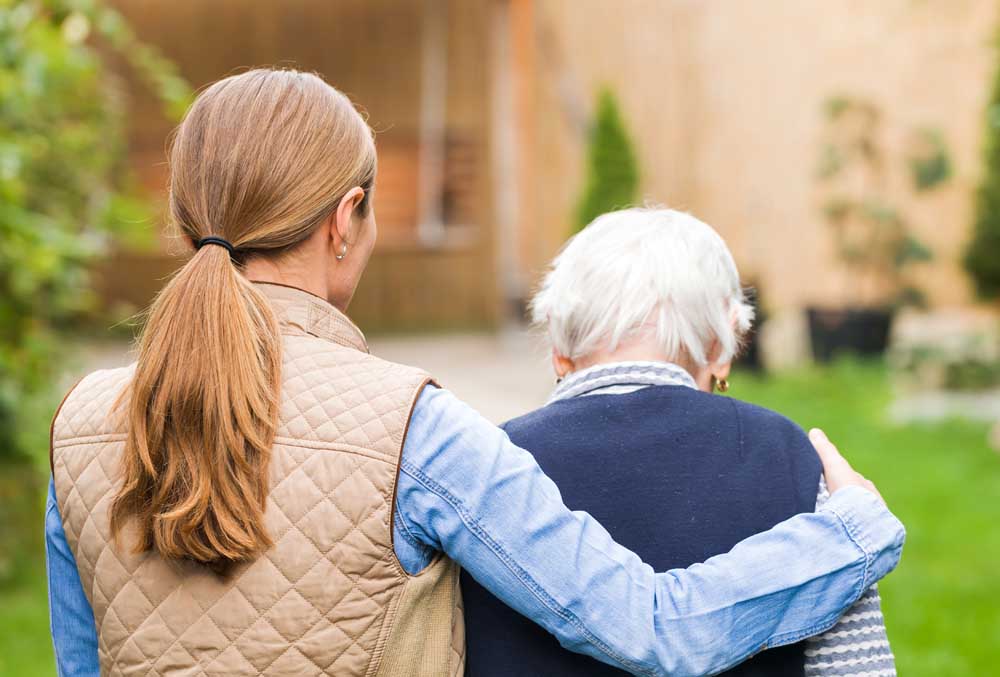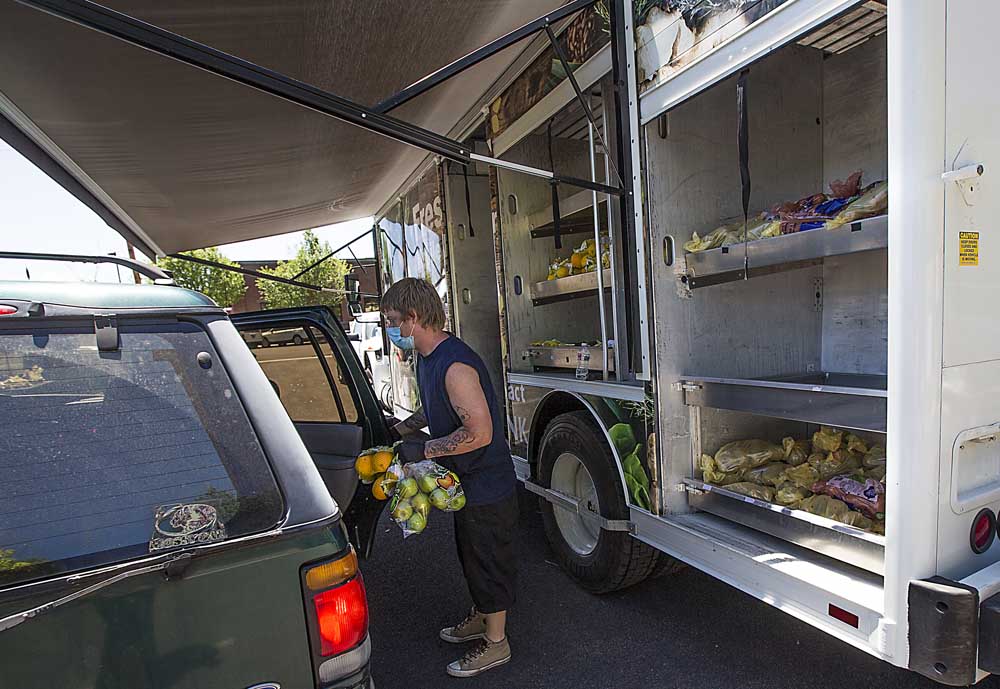Redmond Senior Center brings education to Alzheimer’s Awareness Month
Published 1:00 am Thursday, November 28, 2024

- Young caregiver walking with the elderly woman in the park.
When Susan Myers was singing camp songs to her dad, who had Alzheimer’s, she noticed a single tear rolling down his cheek. By the glint in his eyes, she knew the memories of camping with his daughter returned.
Then it disappeared, and he forgot who she was again.
Myers is a registered nurse at Partners In Care, a nonprofit organization in Bend, and dedicates her life to caring for patients with dementia. She’s also cared for family members, including her father and mother.
Alzheimer’s is a type of dementia that affects memory, behavior and thinking, according to the Alzheimer’s Association, a health organization dedicated to research in dementia.
Though there is no cure yet for Alzheimer’s, local community members are committed to bringing care and connection through recognizing the struggle of the disease.
This November marked Alzheimer’s Awareness Month, which is a time for learning and educating the public about the disease that affects more than 6.2 million people in the U.S., according to Alzheimer’s Foundation of America, a nonprofit organization dedicated to supporting those with Alzheimer’s.
Redmond Senior Center, a community center aimed at fulfilling needs of older adults, recognized the struggle with Alzheimer’s with guest speakers this month from Partners In Care, St. Charles Medical Center and Hospice of Redmond.
“Alzheimer’s Awareness Month is something that is part of our well being series at the Redmond Senior Center,” said Facility & Marketing Coordinator James Morris. “It’s something new that we just started this year–we started in May–and every month we have a specific theme that we kind of follow for our well being.”
Activities and classes at the center are free for all community members who want to attend.
“Anyone who’s interested in knowing more about these topics, we want to be able to provide some good, accurate information from experts in the field so that they can gain the knowledge that they need,” Morris said.
Caring for patients
As a nurse, Myers said people oftentimes forget that those with Alzheimer’s are still who they are at their core. With brain degradation also comes a loss of filters that help them process what they hear.
This can lead to aggression and agitation. Instead of giving the person a reality check, like reminding them what year it is or letting them know they are confused, Myers suggests simply comforting them.
Many times, care can simply be ensuring patients have their basic needs and aren’t hungry, thirsty, need to go to the bathroom or tired, according to Myers.
“I can’t emphasize enough that people with Alzheimer’s or any kind of dementia, they are still who they are in their core, they are there,” Myers said.
Compassionate care is at the heart of Myers’ care for memory loss patients.
“I think they’re lovely human beings whose brains just don’t work the way they used to,” Myers said. “Understand that every human being at their core understands a compassionate approach.”
Caregiver awareness
“I know firsthand when I was taking care of my mom, it’s very difficult as a caregiver,” Morris said. “You need to make sure that you take care of yourself during that time when you’re taking care of somebody else.”
Morris said it can be comforting to know ahead of time what kind of help is available as a caregiver or patient, what treatment options entail and how to care for yourself as a caregiver.
Myers recommends caregivers give themselves breaks, like taking their loved one to an adult daycare like Thelma’s Place or Countryside Living Redmond, nonprofit centers for those navigating memory loss.
“Caregiving is exhausting,” Myers said. “People, family and friends, if they rally around to provide breaks for that caregiver that is the most important thing.”
Partners In Care will begin their Caregiver Cafe series this February to give caregivers a space to share experiences and find connections.
Looking forward
For Alzheimer’s, warning signs include struggling to remember recently learned information, according to Alzheimer’s Association.
It may be difficult for the person experiencing these symptoms to recognize they need to begin treatment.
Instead, it’s more common for those around them to notice signs first.
According to the Alzheimer’s Association, it’s important to see a doctor as early as the first signs, as medicine is becoming more advanced in preventative treatment.
Next month, Redmond Senior Center will continue their wellbeing series with a focus on grief awareness, Morris said.
“As a family member, you’ll know what to expect,” Morris said. “You’ll learn that so that you can kind of get a head start on how to take care of them and get them the care that they need.”






